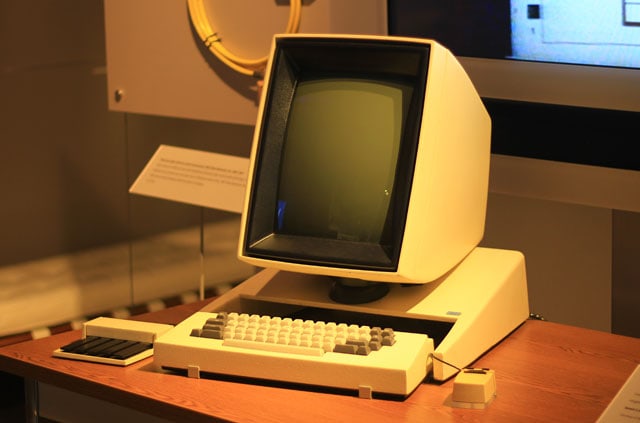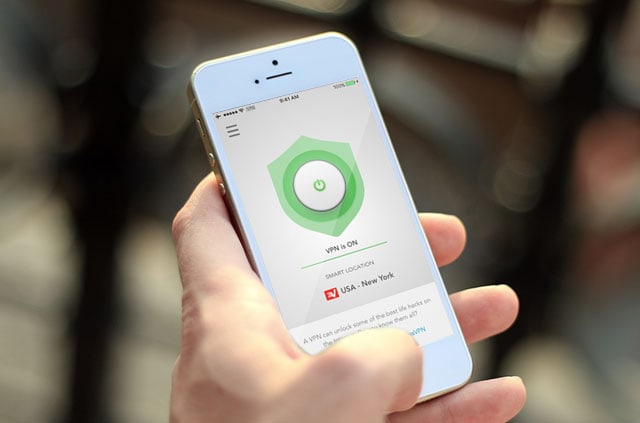“Hey, Siri”
Ask any iOS user if they’ve uttered the above, and they’ll share personal anecdotes of sketchy queries and hilarious replies. What most people don’t notice, is that the advent of voice technology like Siri and Amazon’s Alexa heralds a new paradigm in computing, bringing new conveniences as well as some chilling risks.
A brief history of graphical user interfaces
Until recently, our interactions with computers relied on graphical user interfaces (GUIs). GUIs were first dreamed up in the 1930s by American engineer Vannevar Bush, who envisioned a machine called the Memex (a portmanteau of memory and index) that would present all human knowledge via two graphical display screens, a keyboard, and a scanner.
The technology of Bush’s day was unable to bring the Memex to life, and it wasn’t until the Xerox Alto was introduced in 1973 that computers were capable of combining all the elements required for modern GUIs.

Since then, GUIs have become a core component of our digital lives. Whether you’re typing on a Macbook or tapping on an Android, you rely on a screen to help you operate your device and relay the information you seek. But with voice technology, the GUI may eventually become obsolete.
What benefits and risks can we expect voice technology to add to our computing experience?
The benefits of voice technology
Firstly, voice technology makes our communication with machines more natural. Instead of spending hours teaching yourself (or an older family member) how to operate a fancy new OS, voice technology allows us to interact with machines in a much simpler language—our own.
Just imagine the relief on your grandma’s face when she realizes she can check her email without opening a web browser, typing in a URL, and inputting her incredibly complex password. As voice technology improves, we stand to gain from increased convenience and efficiency as the barriers to operating a digital device fall.
Not only does voice technology introduce added convenience for existing computer users, it also allows people who haven’t been able to use computers to join the digital conversation. A voice-operated computer allows the visually impaired to enjoy (most of) the benefits that come with being online while physically disabled users will be able to operate digital devices with little hassle.
Furthermore, as machines get better at understanding human languages, simultaneous translation technology will help us communicate with foreigners even faster. The resulting productive efficiencies will likely be a benefit to all parties involved.
The dangers of voice technology
But it’s not all rainbows and butterflies. Voice technology requires smart devices that are constantly listening and (potentially) recording. While many devices need to be activated (“Hey, Siri,” “Hey, Cortana”) before they relay spoken information to an online server, there’s no clear insight into who stores what, at what time, and for how long.
It’s no secret modern web services are already gathering information about you, but voice technology allows them to get hold of a key piece of your identity—your voice.
Although we’re still years away from nightmarish scenarios where hackers collect and manipulate your voice recordings for nasty reasons, one can only wonder if the conveniences of voice technology are worth the additional erosions to privacy. If anything, technology companies must ensure their data security measures remain up to task and continue fighting requests for data backdoors on devices.
Use voice technology safely with a VPN

Voice technology promises to open up a new world of benefits and risks, but an existing technology tool can safeguard your digital life all the same. A VPN encrypts and secures any data that leaves your device, so there’s no need to worry about nefarious third parties tapping into your internet connection and getting a hold of your voice (or the things you say with it).
While nothing beats using technology with common sense, a VPN goes a long way to making sure your information (however you relay it) stays yours.
What do you think about voice technology? Are you thrilled to see human-computer interaction takes its next quantum leap? As a forward looking company that’s introduced an IP checker, a DNS leak test, and an awesome app for routers in the past year alone, ExpressVPN is excited by the potential of voice technology.
Don’t count out the possibility of a voice-operated VPN in the near future!
Xerox Alto: Michael Hicks / Wikimedia Commons
iPhone: Pixabay / Pexels (image has been modified)